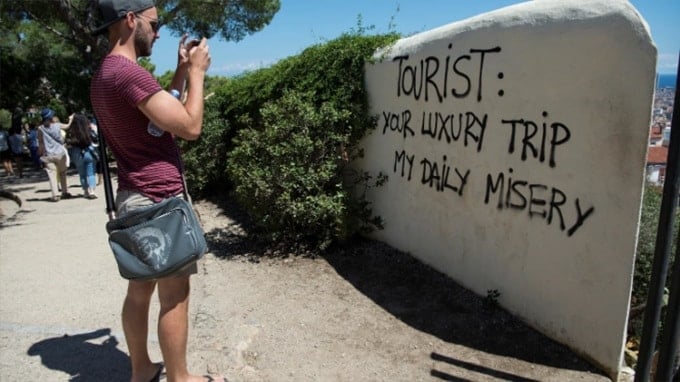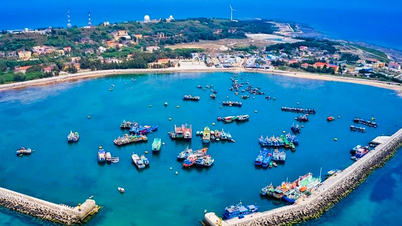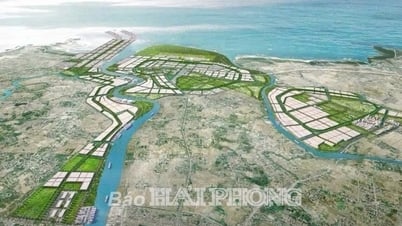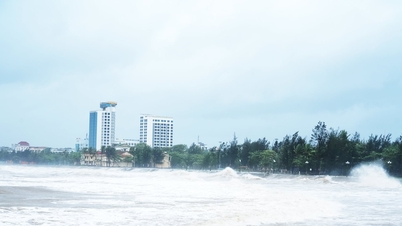
In early July, thousands of protesters sprayed tourists in Barcelona with water cannons, chanting: "Tourists go home." Similar protests also took place in the Balearic Islands, home to Mallorca, another Spanish tourist hotspot. With the move, many believe Spain will experience a summer of lost visitors.
However, figures from Spain's National Statistics Institute show otherwise. International arrivals this summer have continued to rise, with nearly 11 million arriving in August, up 7% from the same month last year.
The three most popular destinations are the ones that have seen the most protests. In the Balearic Islands, some 2.4 million international visitors visited in August, up 4% from the same month in 2023. Catalonia, home to Barcelona, saw 2.3 million visitors, up 6% from the previous year. Andalusia saw 1.6 million visitors, up 9% from the same month in 2023.
A survey by the Mallorca Tourist Board found that 89% of American tourists were "not concerned" or "unaware" of the protests by locals, with 70% saying the protests "did not affect their intention to travel."
Booking.com data shows “no change in bookings following the protests in Mallorca or Barcelona.” RateGain, a company that processes travel transaction and intention data, said there was a “significant impact” on searches and bookings for Barcelona following the July protests. However, the impact was short-lived. In the 7-10 days following the protests, bookings dropped by about 23%, and searches for the destination dropped by 35%. However, bookings rebounded a few weeks later.
Daniel Pardo Rivacoba, one of the protesters in Barcelona, said the protests were not over yet. Locals continued to call on the government to take measures to reduce overtourism so that their lives would not be affected.
Barcelona authorities announced new measures on September 17 to tackle mass tourism, including 55 practical actions that will help strike a balance between the interests of visitors and residents. A City Council spokesman said Barcelona has made tourism control a top priority as the city approaches its annual limit of 17 million visitors.
However, according to Rivacoba, these activities are "just decorative and polished". Speaking about the issue of increasing the city's night tourism surcharge by 4 euros per person, Rivacoba said this is not a measure to reduce the number of tourists but to collect more money. When asked, people in Barcelona said they will continue to protest against tourists.
Booking Holdings CEO Glenn Fogel said protests are not an effective way to solve overtourism, and even have the opposite effect. Reducing overtourism is the government 's responsibility, but to solve this problem, there needs to be cooperation between four parties: the government, tourists, residents, and travel companies.
“Everyone benefits economically from tourists,” Fogel said.
TH (according to VnExpress)Source: https://baohaiduong.vn/tay-ban-nha-cang-duoi-khach-cang-den-dong-395778.html


![[Photo] Prime Minister Pham Minh Chinh launched a peak emulation campaign to achieve achievements in celebration of the 14th National Party Congress](https://vphoto.vietnam.vn/thumb/1200x675/vietnam/resource/IMAGE/2025/10/5/8869ec5cdbc740f58fbf2ae73f065076)

![[Photo] Prime Minister Pham Minh Chinh chairs the Government's online conference with localities](https://vphoto.vietnam.vn/thumb/1200x675/vietnam/resource/IMAGE/2025/10/5/264793cfb4404c63a701d235ff43e1bd)




















































![[VIDEO] Summary of Petrovietnam's 50th Anniversary Ceremony](https://vphoto.vietnam.vn/thumb/402x226/vietnam/resource/IMAGE/2025/10/4/abe133bdb8114793a16d4fe3e5bd0f12)

![[VIDEO] GENERAL SECRETARY TO LAM AWARDS PETROVIETNAM 8 GOLDEN WORDS: "PIONEER - EXCELLENT - SUSTAINABLE - GLOBAL"](https://vphoto.vietnam.vn/thumb/402x226/vietnam/resource/IMAGE/2025/7/23/c2fdb48863e846cfa9fb8e6ea9cf44e7)





































Comment (0)